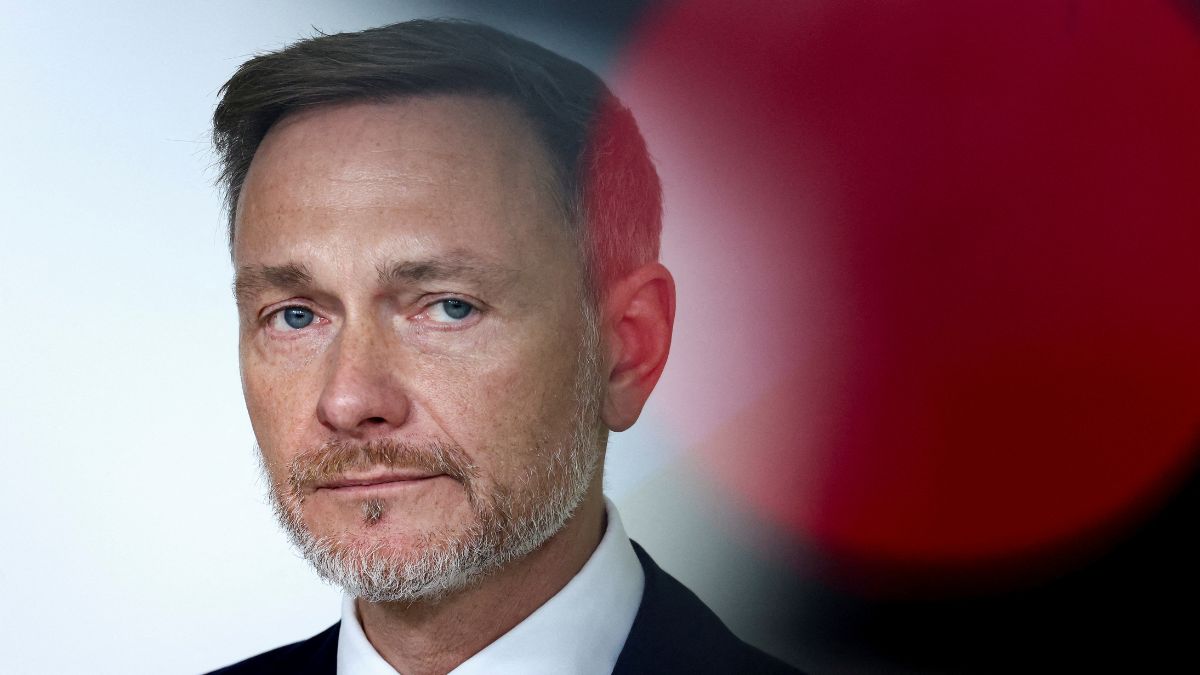Germany’s coalition government is now at a breaking point, with Finance Minister Christian Lindner at the heart of the political crisis.
Chancellor Olaf Scholz dismissed Lindner on Wednesday, signalling the exit of the rebellious head of the liberal Free Democrats (FDP). This move has brought the three-party coalition to the brink of collapse and set the stage for early elections in Germany.
Scholz criticised the fast-talking, 45-year-old Lindner for a “completely incomprehensible” level of egotism. He then declared that there was no longer any “basis of trust” with the finance minister, marking a turning point in their already strained relationship.
Tensions peaked last week when Lindner presented a controversial economic plan, featuring tax cuts and deregulation. The proposal was swiftly rejected by his coalition partners, deepening divisions within the government.
Following the dramatic confrontation, Lindner said Scholz “gave me an ultimatum to suspend the debt brake … I could not agree because otherwise, I would be violating my oath of office.”
Along with the other parties in the coalition, his FDP is now heading for a likely election by late March – six months earlier than scheduled and facing bleak polling numbers.
Rise of Lindner
The crisis is a far cry from Lindner’s entry into government in 2021 when he grabbed the keys to the job he had been chasing for years.
The vintage car lover, who used to list his interests outside politics on his website as “anything that can be filled with petrol”, was put in charge of a massive green investment programme.
However, government support has waned due to high inflation, rising energy costs from the Ukraine war; a stagnating economy and by its own infighting.
Recently, the FDP’s poor showing in eastern Germany’s state elections, failing to meet even single-digit thresholds to enter the assemblies, has cast doubt on the party’s political future.
Having joined the FDP as a teenager, Lindner experienced a rapid rise through the ranks of the party.
Straight out of school, he founded his own publicity company before leaving business to enter the regional parliament in North Rhine-Westphalia as its youngest representative.
Four years later, at the tender age of 25, he became general secretary of the regional party, general secretary of the national party at 30 and eventually party leader at 34.
Also read: Germany’s ruling coalition collapses, Scholz govt in trouble; trust vote likely in January
Light night walkout
Lindner took charge of the FDP in 2014 when the party was at a low point, out of government and even failing to win any seat in the federal parliament.
The return to government could have come sooner, but Lindner has been good for surprise moves before that torpedoed an earlier potential alliance.
After the 2017 general election, many had expected Lindner to partner with the Greens and the conservatives, the FDP’s natural allies.
But in a dramatic reversal, Lindner burst out of early coalition talks to deliver a suprise late-night statement where he declared it was “better not to govern, than to govern badly”.
After taking the FDP leadership, a fresh-faced Lindner set about getting rid of the party’s musty “retirement home smell”, as Spiegel put it, dispelling its image as a talking shop for old men.
He called in image consultants to give the organisation a new lick of paint in 2015, brightening up the FDP’s traditional blue and yellow and adding a flash of magenta to the palette.
A moody black-and-white portrait of the liberal leader was the face of the FDP’s billboard campaign during the last election, prompting criticism that the party had become a one-man band.
What happens next?
Until March’s early elections, the Greens, as the second-largest party in the original three-way coalition, will temporarily govern without a parliamentary majority, seeking support from other parties on critical votes.
Scholz said he would ask Friedrich Merz, leader of the opposition conservatives, to support urgently-needed budgetary measures, saying Germany’s crisis-stricken economy could not wait until after the elections for government action.
Chancellor Scholz has asked opposition leader Friedrich Merz to back urgent budget measures, saying Germany’s crisis-stricken economy could not wait until after the elections for government action.
Although four FDP ministers in the government - besides Lindner, the ministers of justice, transport and education - do not necessarily need to be replaced. Only the finance minister’s position—mandated by the constitution—requires a replacement.
As per Reuters, potential successors include Scholz’s advisor Wolfgang Schmidt, Economy Minister and Vice-Chancellor Robert Habeck, or Scholz himself, who could oversee finance alongside his chancellorship.
With input from AFP and Reuters
)